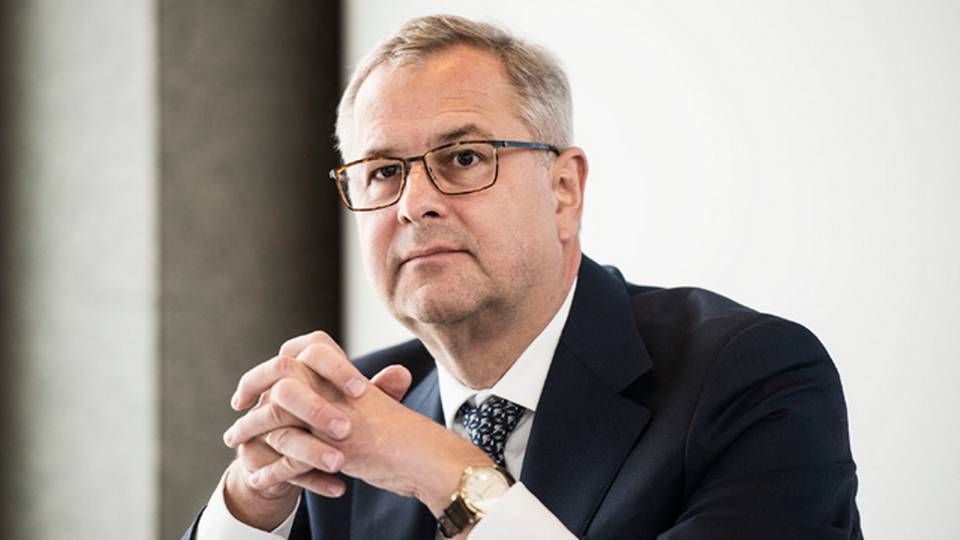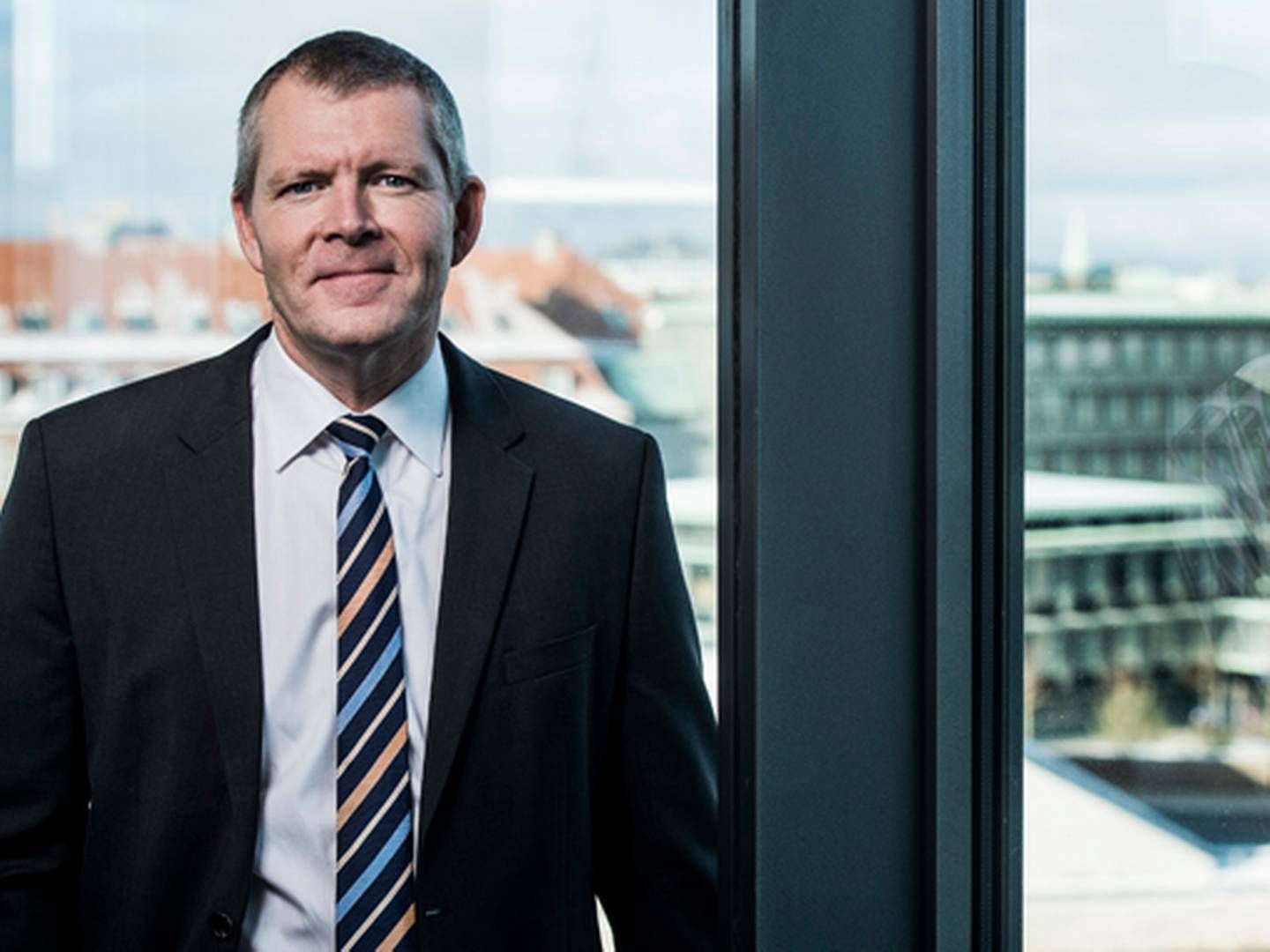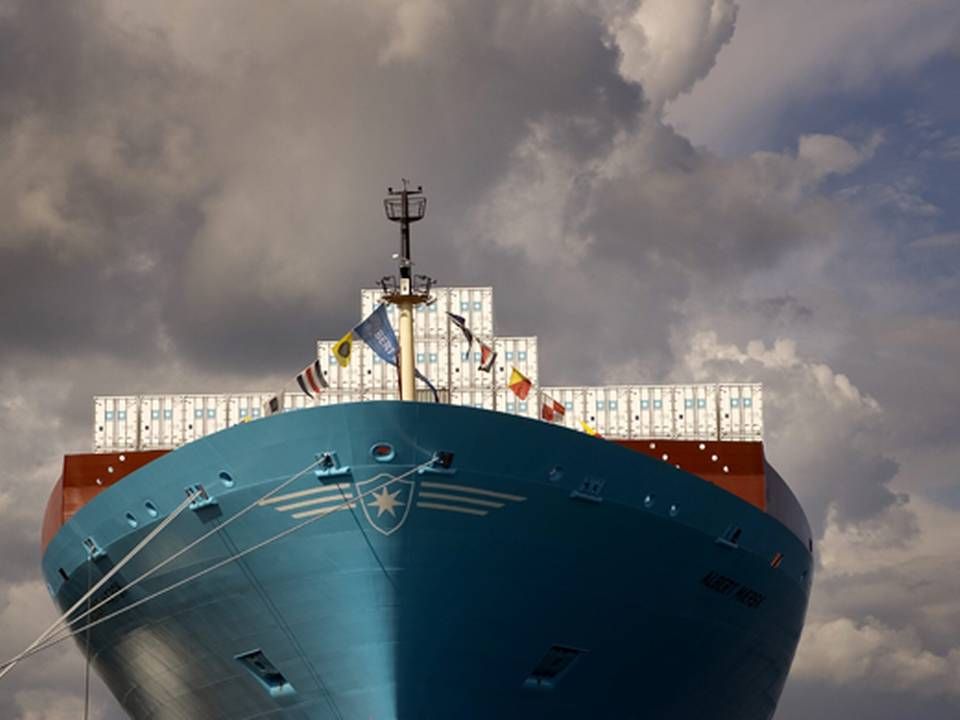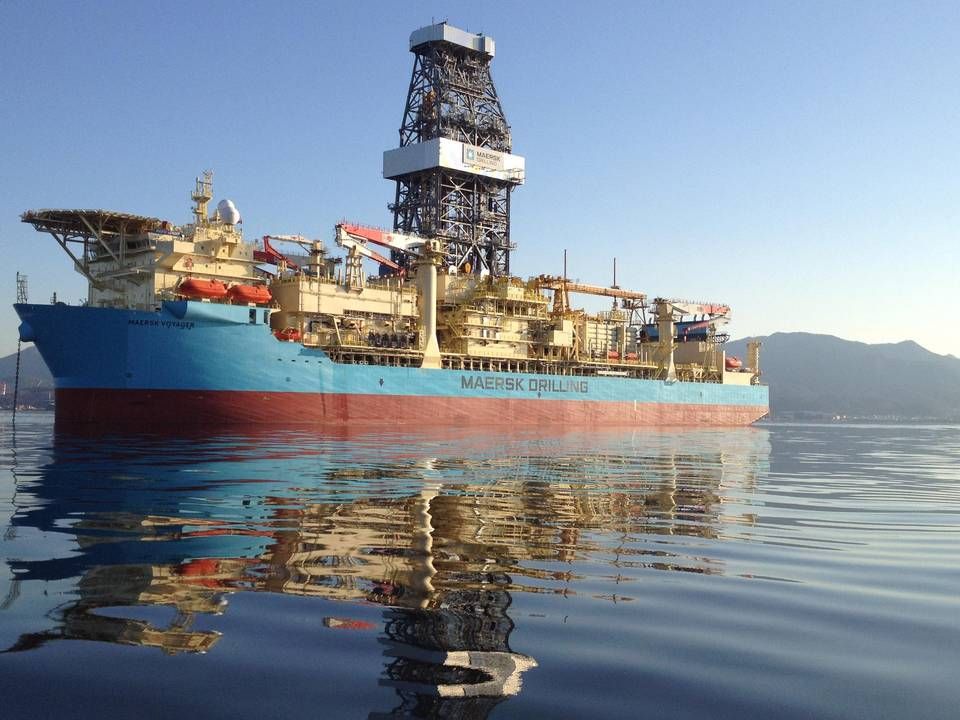"We believe we can do a better job than we did in the third quarter"

Maersk Line's volumes declined 2.5 percent in the third quarter while the otherwise highly positive container market grew 5 percent in the same quarter.
Costs per container are rising. The cyber attack this summer cost Maersk's container business USD 200-300 million, which is one of the factors behind the setback.
Add to this the fact that the liner carrier's schedule reliability is now ranked in the lower half among the sector's major players, if not at the very bottom.
Perhaps one could add the shard of uncertainty that continues to surround the regulatory approval of Maersk's acquisition of Hamburg Süd. The crucial element here is whether China, which has in the past blocked Maersk Line's plans, soon clears the takeover.
Result sends share down
These factors make up the essence of the challenge faced by Maersk's main business driver, Maersk Line. The carrier will serve as the central growth engine, alongside APM Terminals, in the new Transport & Logistics unit, and as such, analysts intimately familiar with Maersk's activities are puzzled by Tuesday's interim report and the results from the important container business.
The stock market went the same way on Tuesday morning, slashing hundreds of millions of dollars from Maersk's market value as the B share dropped 5.30 percent ahead of noon CET, to DKK 11,450 (USD 1,775).
This comes after a year in which the share has hovered at around DKK 12,000, and is thus still far from the ambition of boosting the owners' gains by focusing the business on the new transport division.
One analyst worried about the numbers is former Maersk Line employee and current CEO of Seaintelligence Consulting, Lars Jensen. He points to the loss of market share.
However, beyond just the market share lost in the past quarter, he is just as worried by the fact that Maersk has now watched passively for two consecutive quarters while major growth benefited competitors.
He believes the continued loss of the market will force Maersk Line to make a choice.
A choice must be made
"I especially take note of the fact that the decline in volumes is relatively big. Maersk Line's volumes have declined 2.5 percent, while the market has grown 5 percent. This means that Maersk Line's net volumes are still down 7.5 percent, corresponding to 400,000 teu, and that's a lot. The decline in volumes has a huge impact on unit costs. And this puts Maersk Line in a dilemma that must be solved now, because things can't continue this way. Maersk Line is in a place where the company will have to make a choice to either more actively reclaim market shares from competitors or trim down the network. Because the way things are now, the mismatch between volumes and earnings is too great," Jensen tells ShippingWatch, adding:
"The headhaul routes have generally grown more than the backhaul routes on the market in the third quarter. After the cyber attack, Maersk Line was busy prioritizing headhaul and so there is now a setback on backhaul. This also indicates that the cyber attack cost them a significant portion of their market share."
The world's largest ship brokerage firm, Clarksons Platou, called the report "disappointing" in its first comment, and Maersk management was therefore busy explaining itself to analysts at a teleconference in connection with the report release. Maersk Line's CEO, Søren Skou, acknowledged that the figures are not good enough.
We did not perform well enough
"We're not pleased with our third quarter result. The same is true of the development in unit costs and the growth in volumes," said Skou, adding that the effect of the cyber attack meant that development would have been "flat" if the expensive attack had not happened.
"We could frankly have explained everything in the quarter with the cyber attack and ripples from that. But as a management team, we believe we can do a better job than we did in the third quarter. And we are confident that we will be restoring our operational performance to best-in-class for our industry over the coming quarters."
As head of the combined business at Maersk and with the focus on the container business, the surprisingly poor result at APM Terminals also landed on Skou's desk. For the second quarter in a row, massive impairments in the value of the ports dragged down the result of the port and terminal business. As such, the challenges seem clear for the two core companies.
Working hard on reliability
Besides serving as the main force behind the Hamburg Süd deal, COO Søren Toft is also responsible for the network. He will therefore focus on Maersk Line's battle back into the market, and ensure that the world's largest container carrier once again becomes the most punctual.
"Our main focus is getting volumes back on track. We had high costs in the third quarter. Our reliability improved in September, and when we become more reliable, we will also sail the network more efficiently," he commented on the accounts, adding:
"We are not pleased with what we could deliver to customers, but we are working hard to restore our reliability."
This was also the response after the half-yearly result. In the second quarter 2017, the market pushed forward with 5-6 percent. Maersk's fleet grew by eight percent and yet the Danish carrier only won a 1.7 percent market share.
The next major step is without a doubt to finalize the takeover of Hamburg Süd by securing approval, which the carrier expects will take place before the new year, after which Maersk Line's global market share will grow by two percent to 18.6 percent. The financial gains attached to the acquisition of Hamburg Süd, which Maersk estimates will lie between 300-400 million, however, will first make their mark in 2019.
English Edit: Lena Rutkowski, Gretchen Deverell Pedersen & Daniel Logan Berg-Munch
APM Terminals hit by massive impairments again
Cyber attack hurts Maersk Line's full-year results
After massive impairment: Maersk expects solution for Drilling within next year
Related articles
APM Terminals hit by massive impairments again
For subscribers
Cyber attack hurts Maersk Line's full-year results
For subscribers
Maersk expects solution for Drilling within next year
For subscribers




















